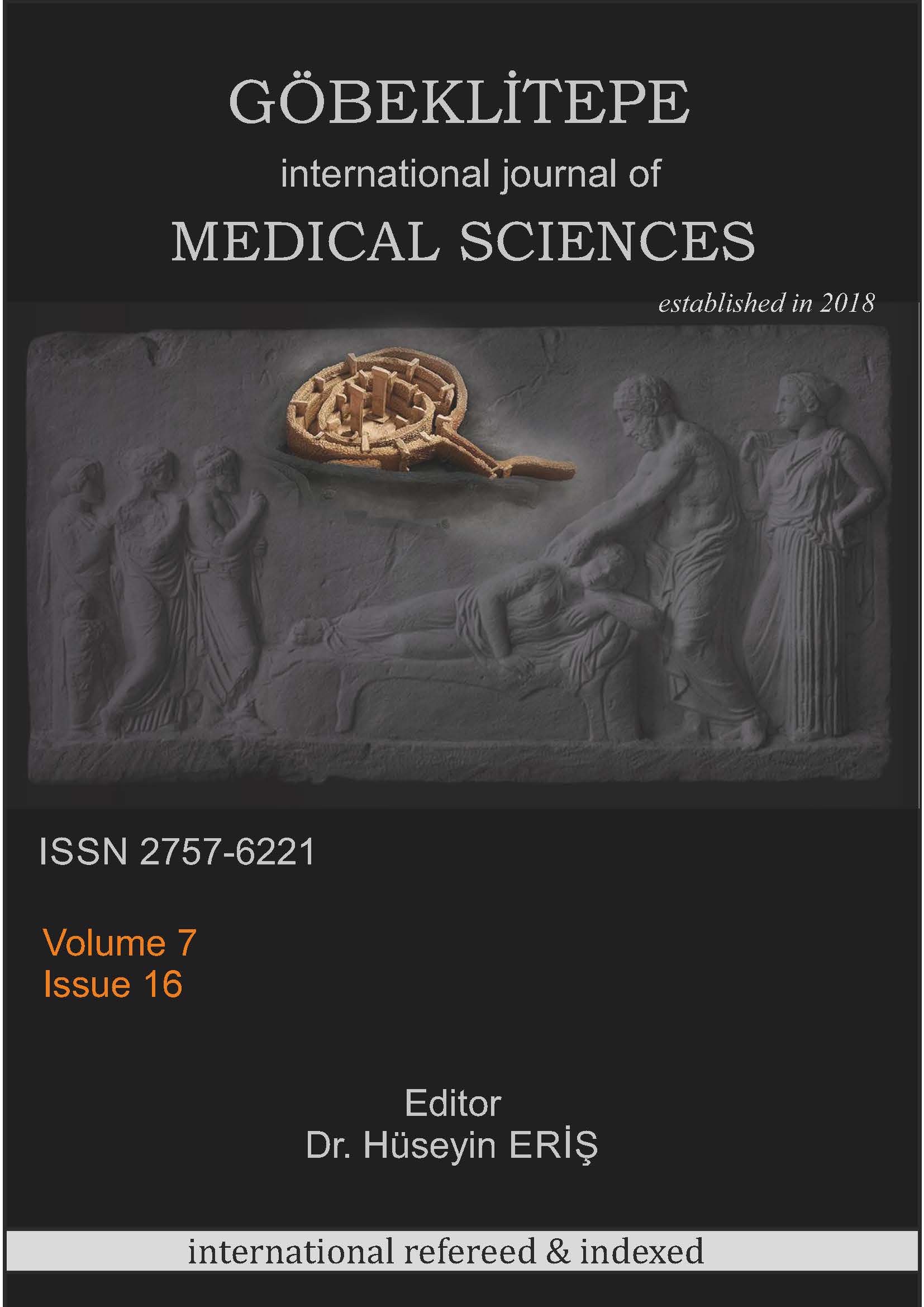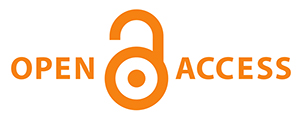THE EFFECT OF THE HEALTH LITERACY LEVELS AND SOCIAL SUPPORT PERCEPTIONS OF SEASONAL FEMALE AGRICULTURAL WORKERS ON BREAST CANCER EARLY DETECTION BEHAVIORS
S
Keywords:
Seaosonal agricultural workers, Health literacy, Social support perception, Early detection behaviors, Breast cancer.Abstract
Breast cancer continues to have a devastating impact worldwide. Women's level of health literacy and perception of social support have an important place in the realization of breast cancer early diagnosis behaviours. The aim of study is to examine the the effects of health literacy levels and Social support perceptions of seasonal female agricultural workes on breast cancer early detection behaviors. The research is of descriptive type. The data of the study were collected between November 2020 and June 2021 in a family health centre region. The study based on 353 seosanal female agricultural workers over the age of 20. The data of the study were evaluated using the Statistical Package for Social Sciences 20.0 package program. Chi-square test, Mann Whitney U test and independent groups t-test were applied to analyze the data. A statistically significant difference was found between women’s breast self-examination and the mean scares of the multidimensional perceived social support scale (t= 3.085, p=0.002) and the health literacy scale (t= 2.173, p=0.0031). It can be recomended to plan and implement training programs to increase health literacy and Social support perceptions and to ensure their continvity.
References
Ferlay, J., Soerjomataram, I., Dikshit, R., Eser, S., Mathers, C., Rebelo, M. et al. (2015). Cancer incidence and mortality worldwide: Sources, methodsand major patterns in GLOBOCAN 2012. International Journal of Cancer. 136(5), 359-386.
Adeloye, D., Sowunmi, Y.O., Jacobs, W., David, R.A., Adeosun, A.A., Amuta, O.A. et al. (2018). Estimating the incidense of breast cancer in Africa: A systematic review and meta-analysis. J Glob Health. 8(1), 010419.
Fernandez, D.M., Larson, J.L., & Zikmund-Fisher, B.J. (2016). Associations between health literacy and preventive health behaviors among older adults: findings from the health and retirement study. BMC Public Health. 16, 596.
Yılmazel, G. (2018). Health literacy, mammogram awareness and screening among tertiary hospital women patients. Journal of Cancer Education. 33(1), 89- 94.
Balçık, P.Y., Taşkaya, S., & Şahin, B. (2014). Sağlık okur-yazarlığı. TAF Preventive Medicine Bulletin. 13(4), 321-326.
U.S. Department of Health and Human Services (HHS). (2000). Healthy People 2010: Understanding and Improving Health. Washington, DC: U.S. Government Printing Office.
Ahmedian, M., Samah, A.A., Emby, Z., & Redzuan, M. (2010). Instrument development forunder standing factors ınfluencing mammography compliance among Iranian women in Metropolitan Tehran, Iran. Asian Social Science. 6(10), 88-96.
Silva, I.T., Griep, R.H., & Rotenberg, L. (2009). Social support, cervical and breast cancer screening practices among nurses. Rev Latino-am Enfermagem. 17(4), 514-21.
Sorensen, K., Van den Broucke, S., Pelikan, J.M., Fullam, J., Doyle, G., Slonska, Z. et al. (2013). Measuring health literacy in populations: illuminating the design and development process of the european health literacy survey questionnaire (HLS-EU-Q). BMC Public Health. 13, 948.
Toçi, E., Burazeri, G., Sorensen, K., Jerliu, N., Ramadani, N., Roshi, E. et al. (2013). Health literacy and socioeconomic characteristics among older people in transitional Kosovo. British Journal of Medicine & Medical Research. 3(4), 1646-1658.
Aras, Z., & Temel, A.B. (2017). Evaluation of validity and reliability of the turkish version of health literacy scale. Florence Nightingale Journal of Nursing. 25(2), 85-94.
Zimet, G.D., Dahlem, N.W., Zimet, S.G., & Farley, G.K. (1988). The Multi dimensional Scale of Perceived Social Support. J Pers Assess. 52, 30-41.
Eker, D., & Arkar, H. (1995). Factor structure, validity and reliability of the multidimensional scale of perceived social support. Turkish Journal of Psychology. 34, 45-55.
Eker, D., Arkar, H., & Yaldız, H. (2001). Factorial structure, validity, and reliability of revised form of the multidimensional scale of perceived social support. Turkish Journal of Psychiatry. 12(1), 17-25.
Çidem, F., & Ersin, F. (2019). The effect of women’s social support and self-efficacy perceptions on early diagnosis behaviors of breast cancer. Journal of Education and Research in Nursing. 16(3), 183-190.
Avcı, E. (2020). Effects of visual materials related to breast cancer on women's behaviors towards early diagnosis of breast cancer within the framework of social marketing. Institute of Health Sciences, Master Thesis, İzmir.
Secginli, S. (2012). Mammography self-efficacy scale and breast cancer fear scale: psychometric testing of the Turkish versions. Cancer Nurs. 35(5), 365-73.
Veena, K.S., Rupavani, K., Rekha, R. (2015). The knowledge and attitude of breast self examinationand mammography among rural women. Int J Reprod Contracept Obstet Gynecol. 4(5), 1511-1516.
Aksoy, Y.E., Turfan, E.Ç., Sert, E., & Mermer, G. (2015). Barriers on breast cancer early detection methods. J Breast Health. 11, 26-30.
Çelikkanat, Ş., & Sohbet, R. (2020). Determination of the knowledge of and attitudes and behaviours towards menopause among women aged 40 years and over. STED. 29(1), 31-37.
Öztoprak, F.S., & Ege, E. Investigation of the relationship between cancer information overload and healthy lifestyle behaviors of female workers. JEUNF. 37(2),141-156.
Polat, P., & Ersin, F. (2017). The effect of breast cancer fear levels of female seasonal agricultural laborers on early-diagnosis behaviors and perceptions of breast cancer. Soc Work Public Health. 2(3), 166–175.
Karaca, P., & Koyucu, G.R. (2020). Evaluation of health care students’ knowledge on breast cancer. Androl bul. 22(2),94-102.
Luszczynska, A. (2004). Change in breast self-examination behavior: effects of ıntervention on enhancing self-efficacy. Int J Behav Med. 11, 95-103.
Duman, N.B., Koçak, D.Y., Albayrak, S.A., Topuz, Ş., & Yılmazel, G. (2015). Knowledge and practices breastand cervical cancer screening among womens over age of 40. JAREN. 1(1), 30-38.
Tatar, M., & Ersin, F. (2021). Effect of social support and barrier perceptions of disabled women on early detection of breast cancer. Health Care for Women Int. 42,7-9, 1133-1143.
Mazor, K.M., Williams, A.E., Roblin, D.W., Gaglio, B., Cutrona, S.L., Costanza, M.E. et al. (2014). Health literacy and pap testing in ınsured women. J cancer educ. 29(4), 698-701.
Çopurlar, C.K., & Kartal, M. (2016). What is health literacy? How to measure it? Why is it important? Turkish Journal of Family Medicine And Primary Care. 10(1), 42-47.
Yılmazel, G. (2018). Health literacy, mammogram awarenessand screening among tertiary hospital women patients. Journal of Cancer Education, 33(1), 89-94.
Panahi, R., Namdar, P., Siboni, F.S., Fallah, S., Anbari, M., Dehghankar, L. et al. (2020). Association between health literacy and adopting preventive behaviors of breast cancer in Iran. J Edu Health Promot. 9,241.
Downloads
Published
Versions
- 2024-10-06 (5)
- 2024-06-26 (4)
- 2024-06-26 (3)
- 2024-06-26 (2)
- 2024-06-26 (1)
How to Cite
Issue
Section
License
Copyright (c) 2024 Göbeklitepe Sağlık Bilimleri Dergisi

This work is licensed under a Creative Commons Attribution 4.0 International License.




